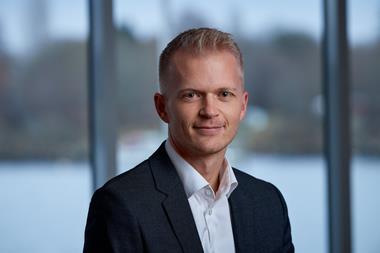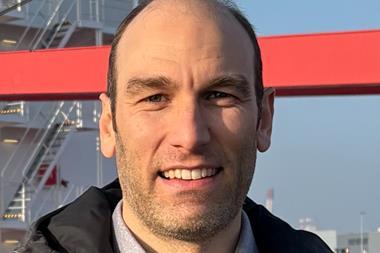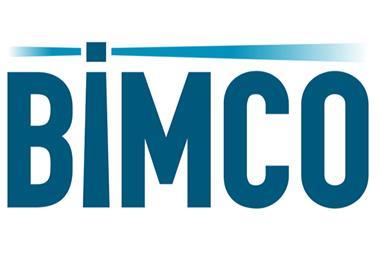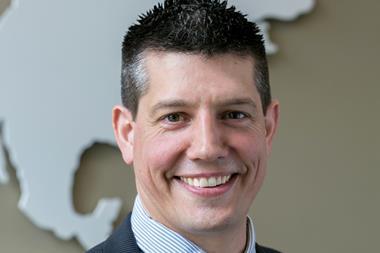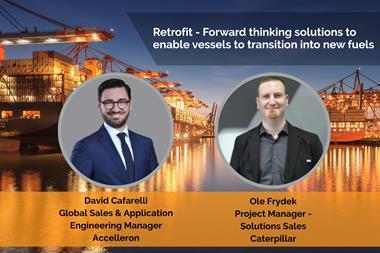A diverse day one at The Motorship’s 44th Propulsion & Future Fuels Conference featured deep dives on emerging emissions regulations and the ship solution that will help operators achieve them.
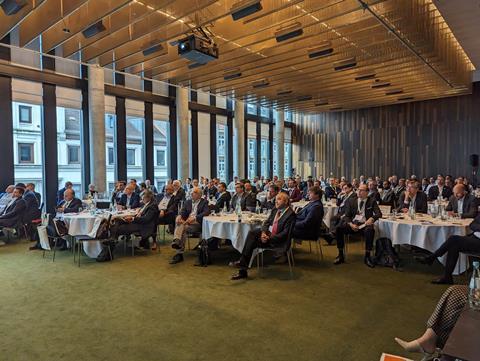
“We’re past the time for talking, now is the time for action.” Those words from BIMCO Deputy Secretary General and conference moderator Lars Robert Pedersen launched the first day of the 44th Motorship Propulsion & Future Fuels Conference. It was a day that delved deep into the emerging regulatory framework, its impact on ship technology and some of the novel thinking needed to reach maritime decarbonisation targets.
The thorny question of who will pay the price of shipping was addressed in a powerful opening session. The answer, in the immediate term, will be shipping, regulators, shipowners and industry associations agreed, with the introduction of a carbon price on shipping arriving in the form of the EU Emissions Trading System next year.
Harry Conway, Chair of IMO’s Marine Environment Protection Committee, was determined that developing countries and small island developing states should not be overburdened by any forthcoming measures. Annika Kroon, head of the maritime transport and logistics unit at the European Commission’s Directorate General of Mobility and Transport, explained how the EU’s ETS and FuelEU Maritime were designed to make sure that laggards pay – both at sea and those who do not develop supply chains for clean fuels on land. And Simon Bennett, Deputy Director General of the International Chamber of Shipping, argued that if it failed to meet its targets, shipping would pay again, in the form of rationing on maritime transport.
The next session looked deeper into the emerging regulatory framework in Europe and at IMO, with classification society perspectives from ABS and DNV ensuring that operators in the room knew exactly where the potential pitfalls and opportunities lay in the new framework. Those views were supplemented with examples of innovation in the maritime industry that did not rely on new fuels; a wind-assisted bulk carrier concept proposed by Oskar Levader of Kongsberg Maritime, and a new propulsor from ABB Marine & Ports that mimics the motion of a whale tail through rotating, independently acting foils.
After lunch, another session explored the steps needed to introduce new fuels safely, and to maximise the potential of integrating multiple efficiency technologies. Claus Winter Graugaard, Head of Onboard Vessel Solutions, Mærsk Mc-Kinney Møller Center for Zero Carbon Shipping, used ammonia as an example of the factors needed to develop a safety framework for onboard operation and bunkering, while Gisle Anderssen, VP Sales and Marketing, Vard Electro, discussed how integrating power systems with alternative fuels achieved optimal energy efficiency on modern wind service operation vessels.
Further examples of creative followed at The Motorship Award session in the afternoon, with technology providers pitching two-stroke efficiency, two-stroke retrofit, four-stroke methane abatement and novel propulsor concepts in a bid to secure the coveted prize. The audience’s winner, ABB Marine & Ports’ Dynafin, was presented with the trophy at a convivial conference dinner held at Hamburger Elbspeicher on the banks of the river Elbe.

